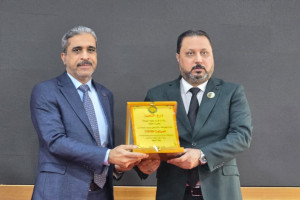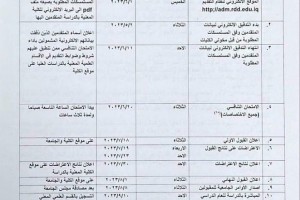
The College of Science at the University of Basrah organized a seminar entitled (Gestational Diabetes: Effects, Symptoms, and Complications) by the graduate student Anwar Hasson Abas. The study aims were to explain the causes of gestational diabetes, its symptoms, risk factors, how to treat and avoid complications, and included: Gestational diabetes is diabetes that is diagnosed for the first time during pregnancy. Gestational diabetes affects how cells use sugar (glucose). Gestational diabetes causes high blood sugar, which can affect pregnancy and the health of the fetus. GDM is currently the most common medical complication of pregnancy, and the prevalence of undiagnosed hyperglycemia and even overt diabetes in young women is increasing. Maternal overweight and obesity, advanced age at childbearing age, previous history of diabetes, family history of type 2 diabetes, and ethnicity are the main risk factors for GDM.
For most women, gestational diabetes does not cause noticeable signs or symptoms. Possible symptoms of extreme thirst and frequent urination.
Diet modification and increased physical activity are primary treatments for GDM, but drug therapy, as usual insulin, is used when blood glucose is not achieved. Oral hypoglycemic agents, principally metformin and glibenclamide, are also used in some countries. Treatment improves immediate pregnancy outcomes and reduces fetal overgrowth, obesity, and pregnancy-related hypertensive disorders.







